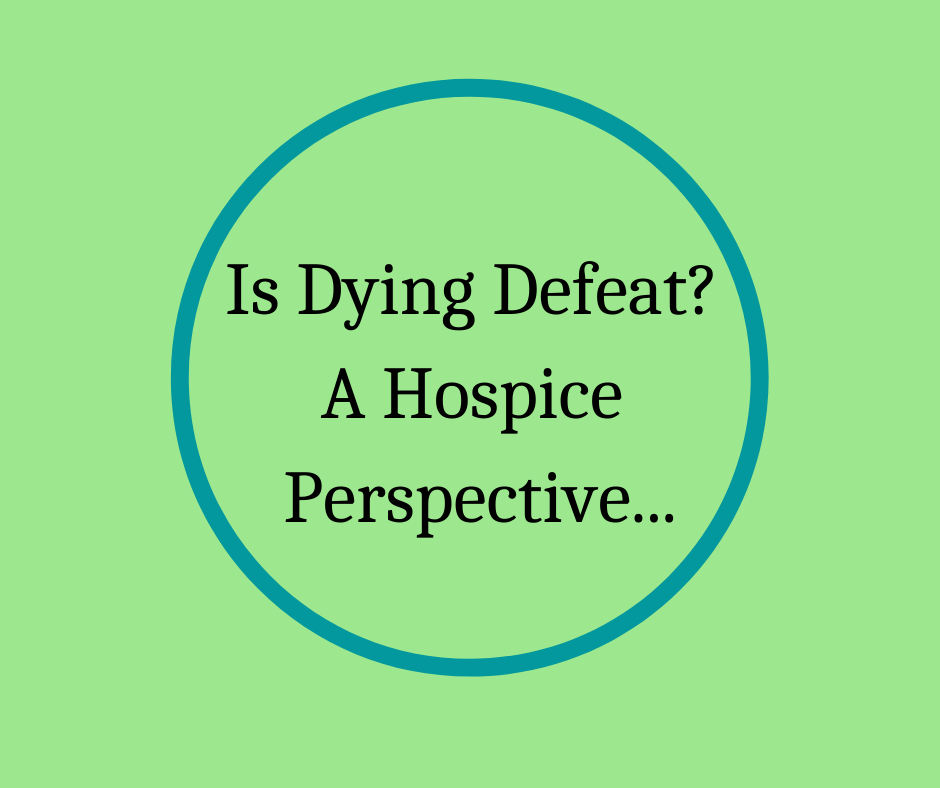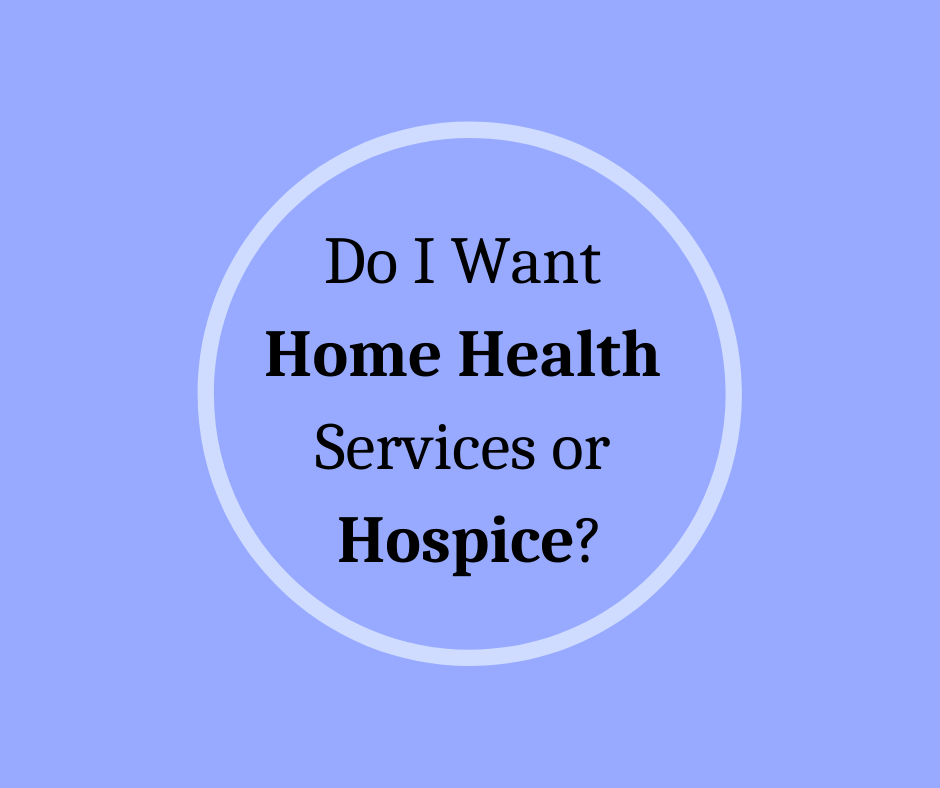I’ve created this LIST OF QUESTIONS for families to use to help identify a “good” hospice.
1. Do you have primary care nursing? Will we have the same nurse, home health aide, social worker, and chaplain for each hospice visit?
*You want the consistency and comfort of knowing the same person.
*This is becoming harder to achieve because fewer and fewer hospices are providing primary nursing.
2. Are the Inpatient services (hospital or Hospice House) offered only for symptom and pain management? Can you stay under private pay when the Medicare time limit for inpatient runs out?
*If you cannot do private pay and the stay in a facility is only for symptom and pain management it means the hospital or Hospice House stay is only for five to seven days, NOT until death occurs.
*This is an area of confusion. It is an important question to answer so that 5 or so days after admission to a Hospice House or hospital you aren’t suddenly having to decide to move a loved one to a nursing facility or home.
3. How often and how long are regular home or nursing facility visits?
* Once a week should be the minimum if life expectancy is months.
* Two to three times a week if life expectancy is weeks.
* Every day or even twice a day if death is expected within days.
How long are the visits?
* In the home - Forty-five minutes to ninety minutes is an average.
* A few visits may be shorter, a few may be longer.
* You don’t want ten to fifteen minute visits. That’s not hospice!
In a nursing facility-
* It depends if the family is present and how responsive the patient is.
* If no family is present and the patient responsive, thirty to forty-five minutes.
4. Do you come to the house when death occurs in the home?
* It is a comfort to have the hospice nurse come to the house when death occurs.
* The guidance and support as well as the assistance with the funeral home is important.
5. How often do the Social Worker and Chaplain visit after the initial visit?
* It may be only once unless you ask for them to return.
* If you want them, how often do they visit?
6. Don’t be concerned about what you won’t need.
* A lot of services offered just don’t matter.
* Social Work and Chaplain services can help guide you through this experience.
* Use their offerings.
* Know that Chaplains are not based on religious denominations.
* Their focus is spiritual comfort no matter a person’s belief or non belief.
7. Be careful of hospice if dementia is the only cause of approaching death.
* Dementia is too unpredictable, unless not eating is the issue and a feeding tube is not the chosen option.
* You may be discharged from the program in a few months because the progression of dementia is so unpredictable.
8. Will hospice make an initial visit to begin services on a weekend or after 5 PM during the week?
* Time is our enemy.
* Disease progression doesn’t just occur during the nine to five, Monday through Friday work day.
Questions 1 and 8 are hard to compromise on but may still be difficult to find. Questions 3 through 7 are just good basic information.
You may not find every question answered the way you want it answered, but you will know more thoroughly what kind of service you will be receiving. Call several hospices with your questions to narrow your choices.
There have been many changes in hospice care since it began. Some for the better, some not so much. What I am suggesting as representing a “good” hospice is becoming harder to find. My hope is that by setting the standard high, and having families ask for that level of care, all hospices will rise to the quality expected.
Something More about... MOM NEEDS HOSPICE? Here are your questions to choose the right one...
When your loved one is in hospice care, read my End of Life Guideline Series to help recognize signs of approaching death, and to know how to care for your loved one during the dying process. If pain is present, read and follow Pain At End Of Life.








7 comments
carla
Great information and the bulk of it explains why I became a death midwife. As a caregiver of 43 years, I’ve seen our “dearly departing” as underserved, so combined private duty nursing with the death doula role and serve as a live-in caregiver in northern VA. I wish more RNs would choose this way of assisting those in hospice.
———
BK Books replied:
Carla, you have the perfect combination for working in end of life situations. You have end of life knowledge and so important you are there, living in. You bring your presence and time to the education and care you give. Blessings to you in the work you are doing. Barbara
Great information and the bulk of it explains why I became a death midwife. As a caregiver of 43 years, I’ve seen our “dearly departing” as underserved, so combined private duty nursing with the death doula role and serve as a live-in caregiver in northern VA. I wish more RNs would choose this way of assisting those in hospice.
———
BK Books replied:
Carla, you have the perfect combination for working in end of life situations. You have end of life knowledge and so important you are there, living in. You bring your presence and time to the education and care you give. Blessings to you in the work you are doing. Barbara
Claudia Hauri
When Mom became more frail, osteoporotic, refused to walk, exercise, & then some in April 2012 I thought maybe 6-8 months. She died July 2014. I was grateful that Vitas kept Mom until she died, as was our 24/7 caretakers. The meds, supplies, support were all there.
Thank you Barbara for your terrific contributions since the Kubler-Ross days of enlightenment. You bring us up-to-date in a precious, kind, firm real way.
When Mom became more frail, osteoporotic, refused to walk, exercise, & then some in April 2012 I thought maybe 6-8 months. She died July 2014. I was grateful that Vitas kept Mom until she died, as was our 24/7 caretakers. The meds, supplies, support were all there.
Thank you Barbara for your terrific contributions since the Kubler-Ross days of enlightenment. You bring us up-to-date in a precious, kind, firm real way.
Barbara
Hi JoAnn, In response to your comment on my blog page, have you read my booklet How Do I Know You? It is about dementia at end of life. It may help you during this time of caring for your mom. Also contact your local Alzheimer’s organization. They can give you support, reading material and community resources.
Blessings to you and your mom. Barbara
Hi JoAnn, In response to your comment on my blog page, have you read my booklet How Do I Know You? It is about dementia at end of life. It may help you during this time of caring for your mom. Also contact your local Alzheimer’s organization. They can give you support, reading material and community resources.
Blessings to you and your mom. Barbara
JoAnn Maiorano
Is “mom needs hospice” a book for sale? I have several of your books and they have really helped me!
My mom is 92 with dementia and is on hospice.. she lives with me! Any of your books you can recommend?
Is “mom needs hospice” a book for sale? I have several of your books and they have really helped me!
My mom is 92 with dementia and is on hospice.. she lives with me! Any of your books you can recommend?
Bernie Lorenz
Great Information
Great Information
G Purdy
I am a hospice volunteer and this information certainly benefits me to be aware of what not to answer as well as what To get family/patient to ask
I am a hospice volunteer and this information certainly benefits me to be aware of what not to answer as well as what To get family/patient to ask
Karolyn Kaye
Barbara,
Excellent post! I try to keep up to date with hospice and this group is invaluable. I worked with our community’s first hospice as their Exec. back “in the day” before HMB and was there for 23 years. So many changes! I was fortunate to have a strong, supportive Board that saw the wisdom of fighting to remain free-standing, independent and (most importantly) not-for-profit. I continue to believe that patients and families need to ask:
Is your program for-profit or not-for-profit?
What is your percentage of indigent care?
I also believe that all hospices are not created equal; a not for profit hospice program would always be my preference.
Karolyn
Barbara,
Excellent post! I try to keep up to date with hospice and this group is invaluable. I worked with our community’s first hospice as their Exec. back “in the day” before HMB and was there for 23 years. So many changes! I was fortunate to have a strong, supportive Board that saw the wisdom of fighting to remain free-standing, independent and (most importantly) not-for-profit. I continue to believe that patients and families need to ask:
Is your program for-profit or not-for-profit?
What is your percentage of indigent care?
I also believe that all hospices are not created equal; a not for profit hospice program would always be my preference.
Karolyn